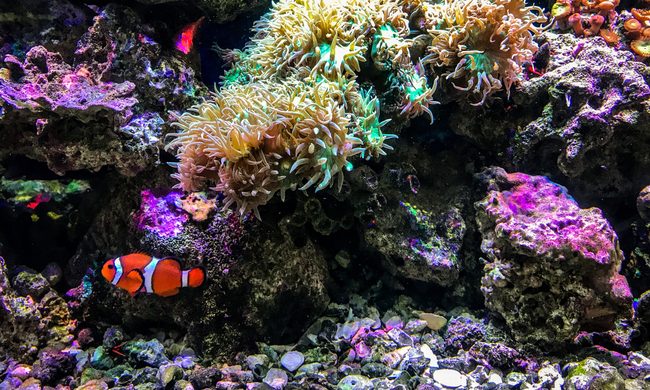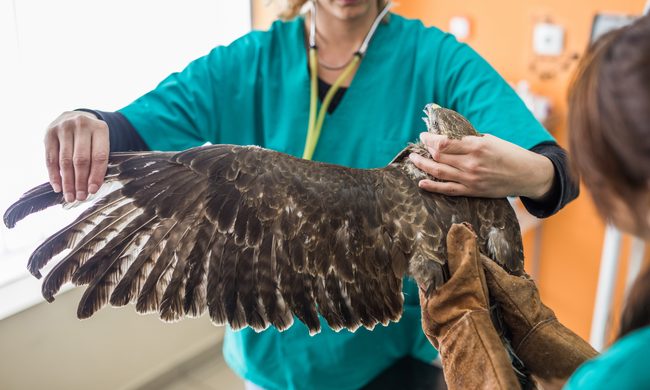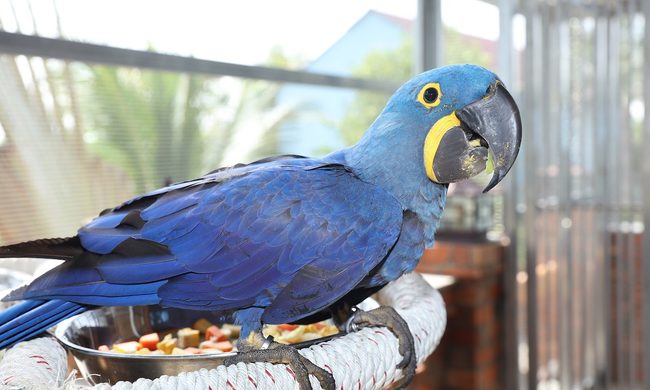Owls are a silent and majestic yet deadly and precise killer. These beings of legend have fascinated humans for thousands of years across the globe, sometimes as wise advisers and sometimes as terrifying harbingers. Unfortunately, that has caused many people to think they can own them as pets, helped along by popular culture in which they deliver mail or add snarky commentary to a wizard’s adventures. But before you go adopting a Hedwig or an Archimedes, you’ll need to know how to take care of an owl or if you should even try.
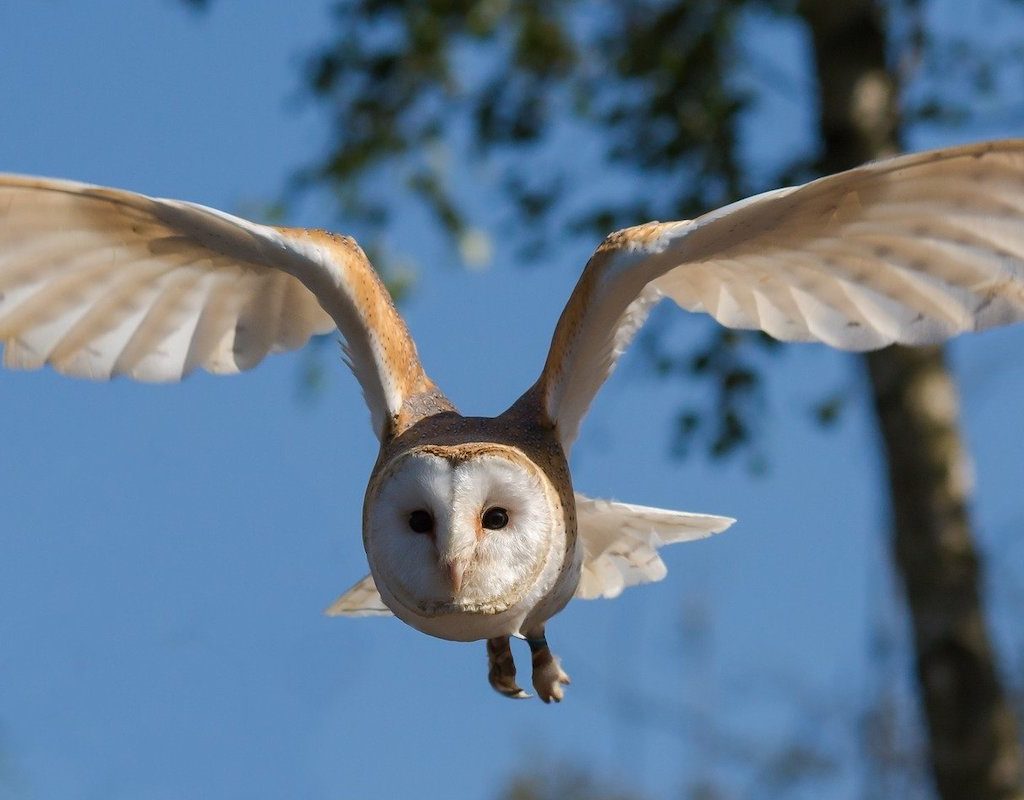
Do owls make good pets?
In a word: no (sorry, we know you wanted a different answer). These wild animals do not make good pets in real life and shouldn’t live with humans except in rare circumstances. They belong free in the outdoors, where they can hunt and fly to their heart’s content. There are a few reasons that owls and other birds of prey don’t fit into your family. Consider these issues before trying to bring one home.
It’s illegal (mostly)
In the U.S., you can’t own many types of owls unless you have a license as an education or rehabilitation center or as a falconer. These all require a lot of training and, of course, the proper housing to keep owls or other raptors around safely. Specifically, the Migratory Bird Treaty Act and the U.S. Fish and Wildlife Service make the rules about which birds you can own and what’s required for a license. Native owls are off-limits, so don’t take this bird in even if you find an injured one — a rehabilitation center can help you with that.
They love to hunt
If you’ve watched owls in nature shows or as pets in movies, you know that they mostly eat small creatures. While their diet varies greatly by species, they’re all carnivores or insectivores. Therefore, feeding an owl requires a lot of diligence and a strong stomach. They prefer to catch the prey, of course, and will also make quite the mess digging into the meal (which gets shredded first). It’s best to leave this to the professionals who know exactly what these birds like and how they like it.
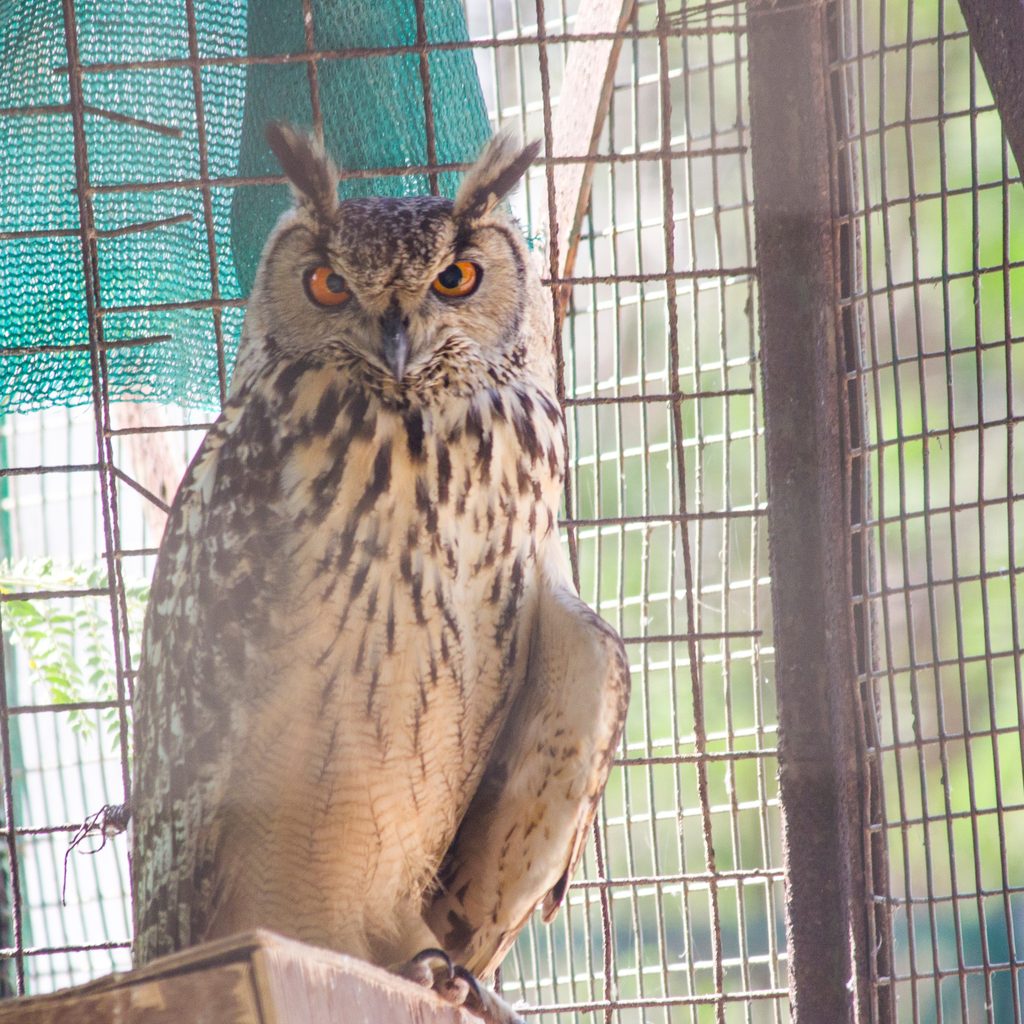
There’s no space in your house
In the wild, owls have a territory of up to five square miles. We doubt you’ll find a cage that big, which is why only large operations can handle them. When owls are housed by professionals, they live in big outdoor aviaries most of the day. But that’s not enough, since these birds must exercise frequently to maintain their wings and muscles. They also need regular bathing to keep those beautiful feathers flight-ready.
You’ll never get to sleep
In their natural habitat, they fly silently with perfect night vision, searching for breakfast, and they’ll want to do the same in your house. Unlike some rodents such as hamsters, these majestic creatures won’t be content to get on your sleep schedule. An owl in captivity requires lots of care both during the day and at night. They will want to eat and fly after dark, which certainly makes it difficult for you to get any rest. The worst part: They make a racket. Even if you can get them a full square meal in the day, they won’t contentedly wait for you to get in your eight hours.
If you’re dying for a pet bird, try out some more domesticated animals who love their humans, like budgies or certain species of parrots. These well-behaved avians make good companions because they’ve lived with people for a long time and they eat seeds instead of rabbits. You can also visit owls or see them online in their homes or at rescue and rehabilitation centers that take in animals. Some owls have been raised as hunters and have mastered the skill of taking down prey for their handlers, a sight well worth watching if you aren’t squeamish. Channel your love of owls by also donating to these centers, many of which are local and small. Regardless, we recommend you think twice before adopting this bird as a pet.


